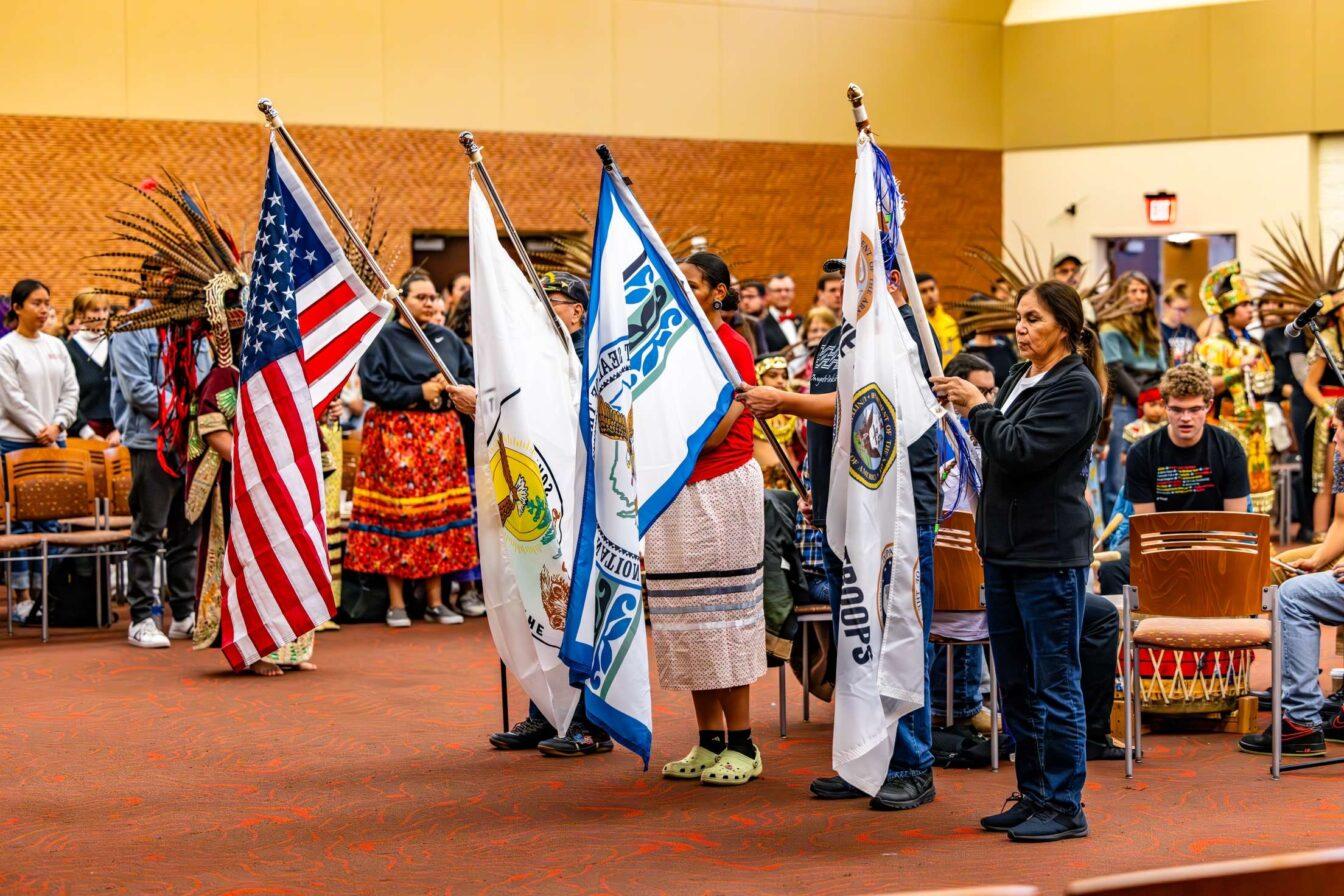At the University of Wisconsin, a powwow in celebration of Indigenous Peoples’ Day was held Monday night at Gordon’s Dining and Event Center, hosted by student organization Wunk Sheek and the Indigenous Student Center.
The powwow served as an opportunity to bring the community of local Indigenous peoples together in a night of dancing, singing, speeches and food according to Wunk Sheek’s Instagram page.
Indigenous Peoples’ Day was formally established by President Joe Biden in 2021. Formerly a day honoring Christopher Columbus, the day was transformed into a holiday to recognize the Indigenous nations that were forever impacted by colonialism, according to an article from PBS News Hour.
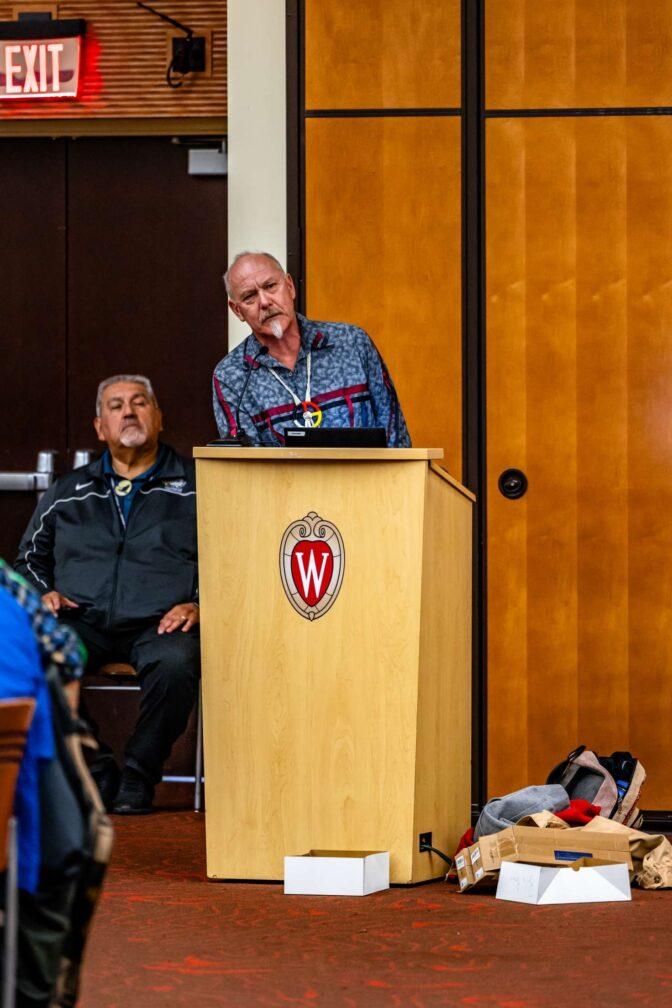
“It’s about remembering the beginning of how this Earth Mother was created, and then carrying that forward all the way through to where we stand today,” Event emcee and member of the Oneida Nation Artley Skenandore said.
Celebrating in song and dance allows Indigenous peoples to honor the ancestors that came before them, as well as extend that honor to one another and encourage making contributions towards the future, Skenandore said.
The event featured music by the Oka Homma Host Drum and the LCO Badgers. Performances of Ingenious dance took place throughout the night, including an inter-tribal grand entry, a veteran’s song and a traditional Aztec dance and drum. Tessa Begay and James Flores were named as head dancers for the event. Skenadore encouraged all attendees to join in with the performers.
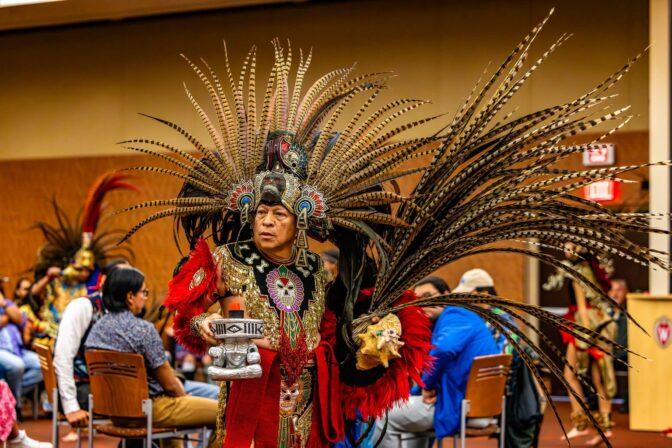
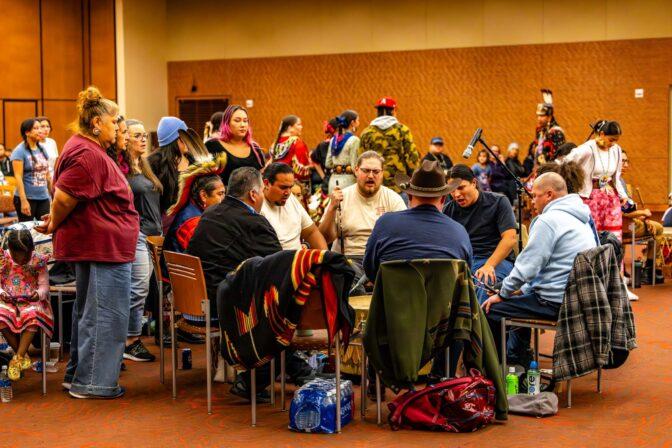
“This gathering is about celebrating and renewing the spirit of that strong fire that’s allowed us to be here as Indigenous people in this continent and in this hemisphere,” Skenandore said. “We refer to this place as our Turtle Island. We refer to this as our home of our ancestors. Whenever we put our feet on the ground, we’re reminded that that’s the ancestors that allowed us to connect and continue to improve just to teach one another about these good ways.”
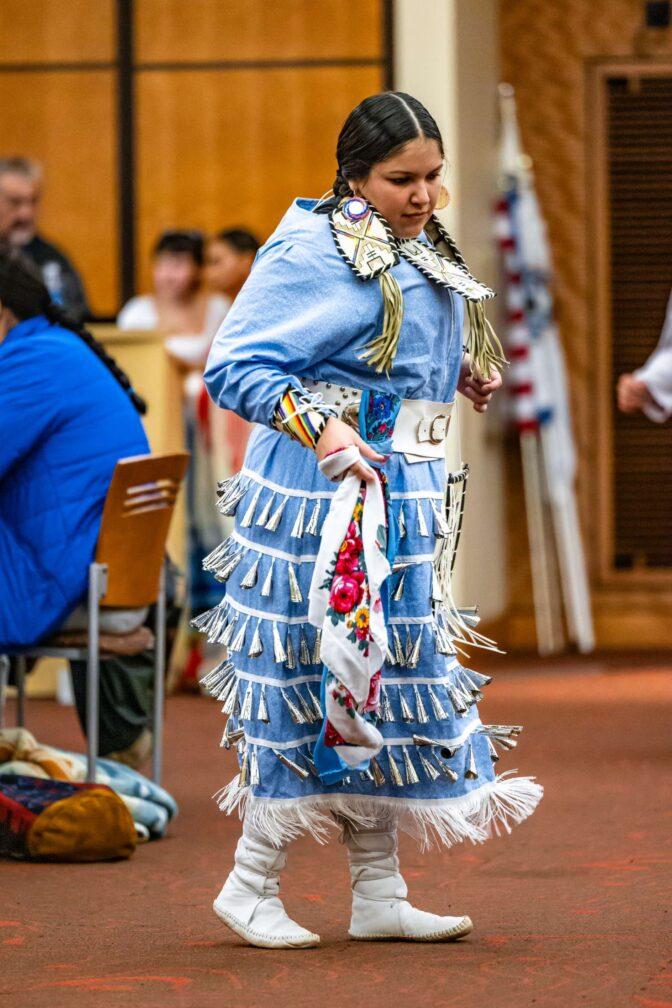
Members of Wunk Sheek also spoke about the importance of community in healing the generational wounds of the Indigenous peoples and battling the displacement they still face today at the powoww.


